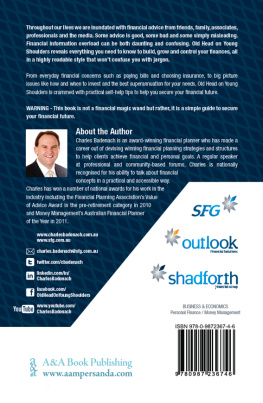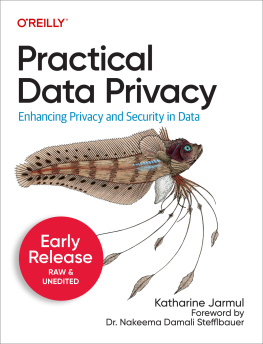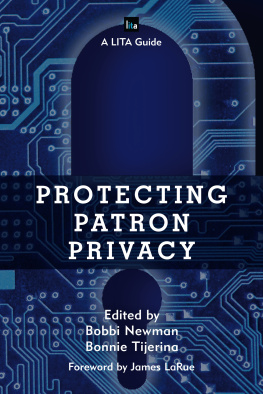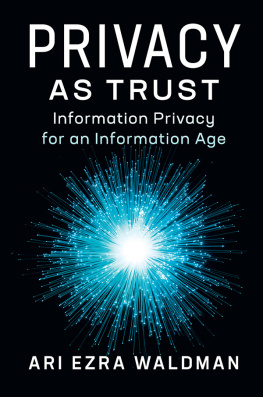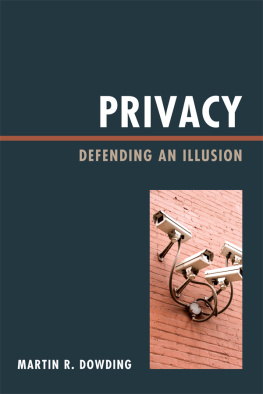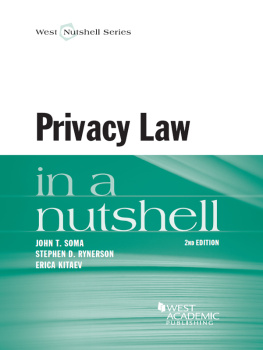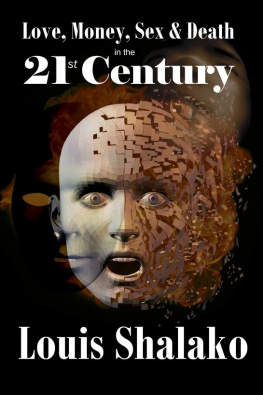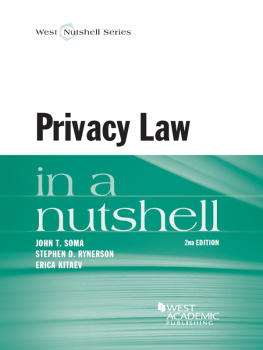Chapter 1. Privacy Under Attack
You wake to the sound of a ringing telephonebut how could that happen?
Several months ago, you reprogrammed your home telephone system so the phone would never ring before the civilized hour of 8:00 a.m. But it's barely 6:45 a.m. Who could be calling at this time? More importantly, who was able to bypass your phone's programming?
You pick up the telephone receiver, then slam it down a moment later. It's one of those marketing machines playing a prerecorded message. Computerized telemarketing calls have been illegal within the United States for more than a decade now, but ever since international long-distance prices dropped below 10 cents a minute, calls have been pouring in to North America from all over the world. And they're nearly all marketing callshence the popularity of programmable phones today. What's troubling you now is how this call got past the filters you set up. Later on, you'll discover how: the company that sold you the phone created an undocumented "back door"; last week, the phone codes were sold in an online auction. Because you weren't paying attention, you lost the chance to buy back your privacy.
Oops.
Now that you're awake, you decide to go through yesterday's mail. There's a letter from the neighborhood hospital you visited last month. "We're pleased that our emergency room could serve you in your time of need," the letter begins. "As you know, our fees (based on our agreement with your HMO) do not cover the cost of treatment. To make up the difference, a number of hospitals have started selling patient records to medical researchers and consumer marketing firms. Rather than mimic this distasteful behavior, we have decided to ask you to help us make up the difference. We are recommending a tax-deductible contribution of $275 to help defray the cost of your visit."
The veiled threat isn't empty, but you decide you don't really care who finds out about your sprained wrist. You fold the letter in half and drop it into your shredder. Also into the shredder goes a trio of low-interest credit card offers.
Why a shredder? A few years ago you would have never thought of shredding your junk mailuntil a friend in your apartment complex had his identity "stolen" by the building's superintendent. As best as anybody can figure out, the super picked one of those preapproved credit-card applications out of the trash, called the toll-free number, and picked up the card when it was delivered. He's in Mexico now, with a lot of expensive clothing and electronics, all at your friend's expense.
On that cheery note, you grab your bag and head out the door, which automatically locks behind you.
When you enter the apartment's elevator, a hidden video camera scans your face, approves your identity, and takes you to the garage in the basement. You hope nobody else gets in the elevatoryou don't relish a repeat of what happened last week to that poor fellow in 4G. It turns out that a neighbor recently broke up with her violent boyfriend and got a restraining order against him. Naturally, the elevator was programmed to recognize the man and, if he was spotted, to notify the police and keep the doors locked until they arrived. Too bad somebody else was in the elevator when it happened. Nobody realized the boyfriend was an undiagnosed (and claustrophobic) psychotic. A hostage situation quickly developed. Too bad for Mr. 4G. Fortunately, everything was captured on videotape.
Your car computer suggests three recommended approaches to your office this morning. You choose wrong, and a freak accident leaves you tied up in traffic for more than half an hour. As you wait, the computer plays an advertisement for a nearby burger joint every five minutes. You can't turn it off, of course: your car computer was free, paid for by the advertising.
Arriving late at work, you receive a polite email message from the company's timecard system; it knows when you showed up, and it gives you several options for making up the missed time. You can forgo lunch today, work an extra 45 minutes this evening, or take the 45 minutes out of your ever-dwindling vacation time. The choice is yours.
You look up and force a smile. A little video camera on your computer screen records your smile and broadcasts it to your boss and your coworkers. They've told you that Workplace Video Wallpaper? builds camaraderiebut the company that sells the software also claims that the pervasive monitoring cuts down on workplace violence, romances, and even drug use. Nowadays, everybody smiles at workit's too dangerous to do otherwise.
The cameras are just one of the ways you're being continually monitored at work. It started with electronic tags in all the company's books and magazines, designed to stop the steady pilferage from the library. Then, in the aftermath of a bomb scare, employees were told they'd have to wear badges at all times, and that desks and drawers would be subject to random searches. (Rumor has it that the chief of security herself called in the bomb threata ploy to justify the new policies.)
Next month, the company is installing devices in the bathrooms to make sure people wash their hands. Although the devices were originally intended for the healthcare and food industries, a recent study found that routine washing can also cut down on disease transmission among white-collar workers. So the machines are coming, and with them you'll lose just a little bit more of your privacy and your dignity.
This is the futurenot a far-off future, but one that's just around the corner. It's a future in which what little privacy we now have will be gone. Some people call this loss of privacy "Orwellian," harking back to 1984, George Orwell's classic work on privacy and autonomy. In that book, Orwell imagined a future in which privacy was decimated by a totalitarian state that used spies, video surveillance, historical revisionism, and control over the media to maintain its power. But the age of monolithic state control is over. The future we're rushing towards isn't one where our every move is watched and recorded by some all-knowing "Big Brother." It is instead a future of a hundred kid brothers that constantly watch and interrupt our daily lives. George Orwell thought that the Communist system represented the ultimate threat to individual liberty. Over the next 50 years, we will see new kinds of threats to privacy that don't find their roots in totalitarianism, but in capitalism, the free market, advanced technology, and the unbridled exchange of electronic information.
What Do We Mean By Privacy?
The concept of privacy is central to this book, yet I wish I had a better word to express the aspect of individual liberty that is under attack by advanced technology as we enter the new millennium.
For decades, people have warned that pervasive databanks and surveillance technology are leading inevitably to the death of privacy and democracy. But these days, many people who hear the word "privacy" think about those kooks living off in the woods with their shotguns: these folks get their mail at post office boxes registered under assumed names, grow their own food, use cash to buy what they can't grow for themselves, and constantly worry about being attacked by the federal governmentor by space aliens. If you are not one of these people, you may well ask, "Why should I worry about my privacy? I have nothing to hide."




